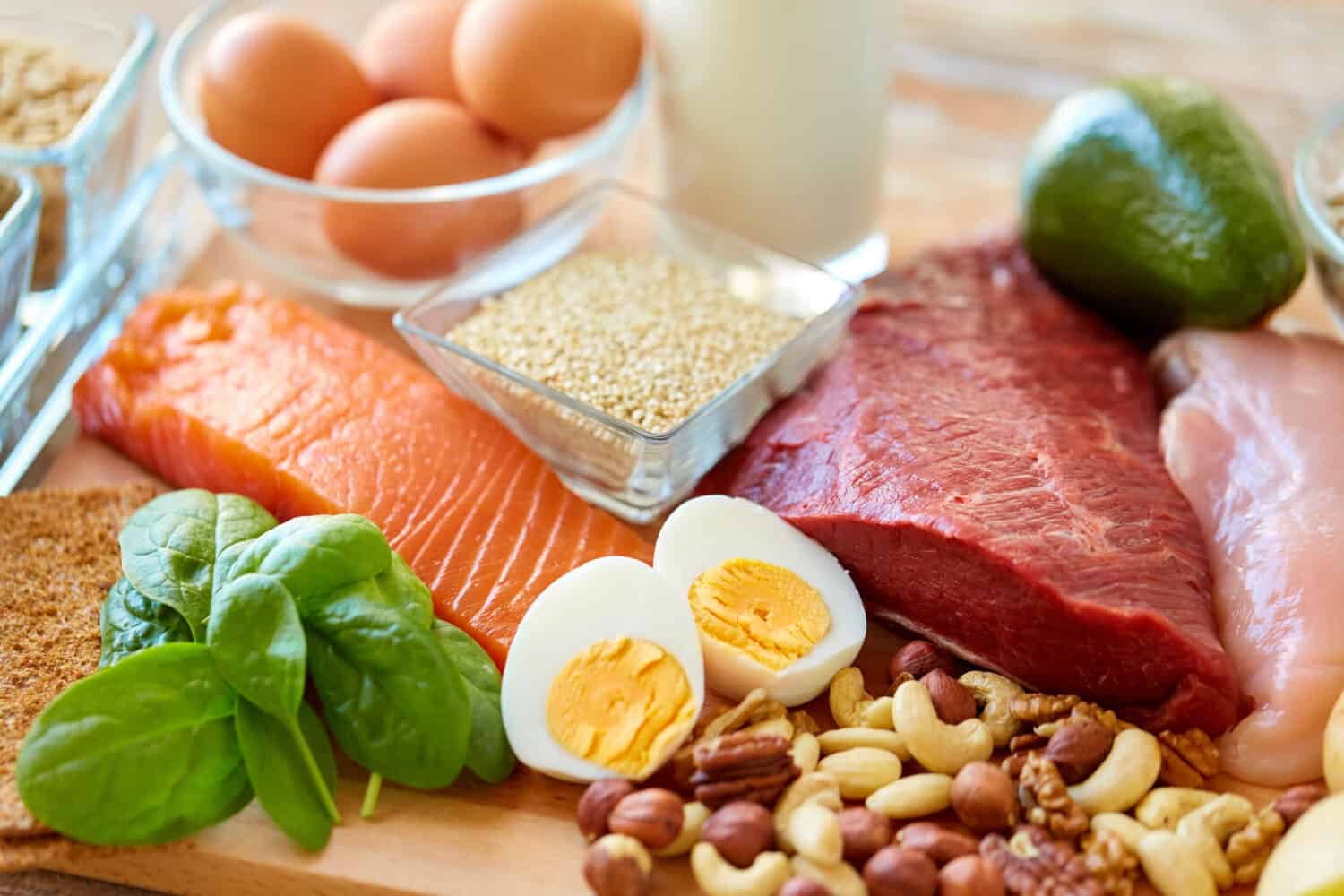Aladingsc Insights
Your go-to source for trending news and informative guides.
Protein Paradise: Unlocking the Secrets of a Satisfying Diet
Discover the delicious secrets of a protein-packed diet that satisfies cravings and fuels your body. Dive into Protein Paradise now!
The Ultimate Guide to Protein: Types, Benefits, and Sources
Protein is an essential macronutrient that plays a crucial role in building and repairing tissues, making it vital for overall health. There are several types of protein, which can be broadly categorized into complete and incomplete proteins. Complete proteins contain all nine essential amino acids and are primarily found in animal sources such as meat, fish, and dairy. In contrast, incomplete proteins, which lack one or more essential amino acids, are found in most plant-based sources like beans, lentils, and grains. Understanding the differences between these protein types is important for formulating a balanced diet that meets your nutritional needs.
The benefits of consuming adequate protein are numerous, ranging from muscle synthesis to improved immune function. A high-protein diet can help with weight management by promoting feelings of fullness and reducing appetite. Additionally, protein contributes to muscle maintenance and recovery, making it essential for athletes and fitness enthusiasts. With a variety of protein sources available, individuals can easily incorporate this macronutrient into their meals. Here are some excellent sources of protein:
- Lean meats (chicken, turkey, beef)
- Fish (salmon, tuna, cod)
- Dairy products (milk, yogurt, cheese)
- Plant-based options (tofu, quinoa, nuts, and seeds)

How to Incorporate More Protein into Your Daily Meals
Incorporating more protein into your daily meals is essential for enhancing muscle growth, improving overall health, and keeping you satisfied throughout the day. To start, consider adding protein-rich foods to your breakfast. Options like Greek yogurt, eggs, and cottage cheese are excellent choices. You can also blend a scoop of protein powder into your morning smoothie or oatmeal for a quick boost. For variety, consider these protein-packed breakfast ideas:
- Veggie omelet with cheese
- Chia seed pudding topped with nuts
- Peanut butter on whole-grain toast
Another effective way to increase protein intake is by making strategic substitutions during lunch and dinner. For instance, replace traditional grains with quinoa or farro, as these grains are not only nutritious but also contain higher protein levels compared to rice or pasta. When it comes to snacks, opt for high-protein options like nuts, jerky, or protein bars instead of chips or cookies. Additionally, try to include a source of protein in every meal, whether it's through meat, legumes, or dairy. Remember, small changes can lead to significant increases in your overall protein consumption!
Is Plant-Based Protein Enough? Debunking Common Myths
With the rise of veganism and plant-based diets, many are questioning the adequacy of plant-based protein in meeting dietary needs. One common myth is that plant proteins are incomplete, lacking essential amino acids. However, this is largely unfounded; most plant proteins, such as those found in quinoa, soy, and hemp, provide all nine essential amino acids. Additionally, combining different sources like legumes with grains can easily help you achieve a complete amino acid profile, making it simple to meet your protein requirements without animal products.
Another misconception is that plant-based protein does not support muscle growth as effectively as animal protein. Studies have shown that with proper planning and adequate caloric intake, those who consume plant proteins can build and maintain muscle mass just as effectively. Key factors include focusing on high-quality protein sources, such as lentils, chickpeas, and nuts, as well as incorporating strength training into your routine. Don't let myths deter you; a well-rounded, plant-based diet can fulfill your nutritional needs and support a healthy lifestyle.